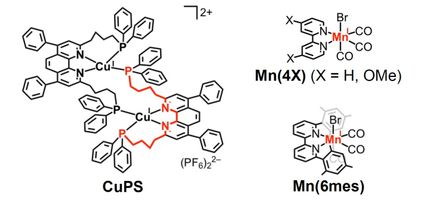Bayer: Further reduction in emissions despite higher production volumes
Greenhouse gases emissions was cut by 7 percent compared with the previous year
Advertisement
Despite an increase in production, the Bayer Group achieved further environmental improvements in 2005 by significantly lowering emissions again. Greenhouse gas emissions, for example, fell by 7 percent compared with the previous year. The figure is taken from the newly published Sustainable Development Report, in which the company discloses information on its performance in the fields of environmental protection, safety and health, its sustainability management system and sustainability objectives, recent initiatives for its employees and social responsibility projects. The validity of the data was monitored and certified by independent auditors.
"For Bayer, success is not something that can be measured solely in statistics and growth rates. We want to bring commercial efficiency, ecology and social commitment into harmony with each other," says Werner Wenning, Chairman of Bayer's Board of Management. "To do this, we want to acquire a leading technological and economic position in our industry, and, at the same time, set standards in environmental protection and social commitment. The new Sustainable Development Report documents the commitment of the Group to respect the needs of its employees and society, and to constantly strive to protect the environment and conserve natural resources."
In 2005, the volume of products sold by Bayer increased by 9 percent. In spite of this, the direct emission of greenhouse gases was cut by 7 percent and the company's energy use by 10 percent compared with 2004 as a result of technical improvements and structural changes. The wastewater loads also fell - significantly in the case of nitrogen, organic compounds, heavy metals and inorganic salts.
By focusing its environmental activities on climate protection Bayer has tackled one of the most pressing global challenges today. Across the Group Bayer has reduced greenhouse gas emissions by more than 70 percent since 1990. "As a result, we have not only achieved our goal of halving climate-related emissions between 1990 and 2010, we have also met the exacting demands of the Kyoto Protocol long before the deadline," says Dr. Wolfgang Plischke, member of the Bayer Board of Management responsible for Innovation, Technology and Environment.
Bayer was also successful in its continuing endeavors to improve safety at work. The accident rate (number of injuries with days lost per million working hours) was kept at 2.7, the same low level as the previous year - the result of various training measures and campaigns among the workforce. To further drive equal opportunities within the Bayer Group and intensify staff training activities, the company has introduced some new social indices: the percentage of women (3.9 percent in 2005) and number of nationalities (17 in 2005) in senior management, and the proportion of training and continuing education costs in the overall personnel costs (2.3 percent in 2005).
In all areas, the Bayer Group has set itself qualitative and quantitative targets for the coming years and embedded them in its sustainability program - targets against which it will measure itself in the coming years. This also applies to its broad social commitment. At present, Bayer supports around 300 projects throughout the world, with the emphasis on education and research, environmental protection, health and social care, sports and culture. In 2005, the company spent around EUR 50 million on activities connected with corporate social responsibility. Two of the key projects are Bayer's global partnership with the United Nations Environment Programme (UNEP) in the area of young people and the environment and a scientific cooperation with NATIONAL GEOGRAPHIC Germany on the global conservation of drinking water.
The data for the report were collected at all Bayer's sites throughout the world - not only at the production facilities, but also in warehouses, research laboratories and offices. The procedures used for the purpose of collecting, compiling and validating the data were reviewed and certified by the Deloitte auditing company.
In compiling and presenting its sustainability data, Bayer follows the guidelines of the Global Reporting Initiative (GRI), a partner organization of the United Nations set up to compile internationally accepted guidelines for sustainable development reporting. Bayer actively supports the GRI in the further development of the guidelines.
The Bayer Sustainable Development Report 2005 can be ordered free of charge, please use the contact button below.



































































